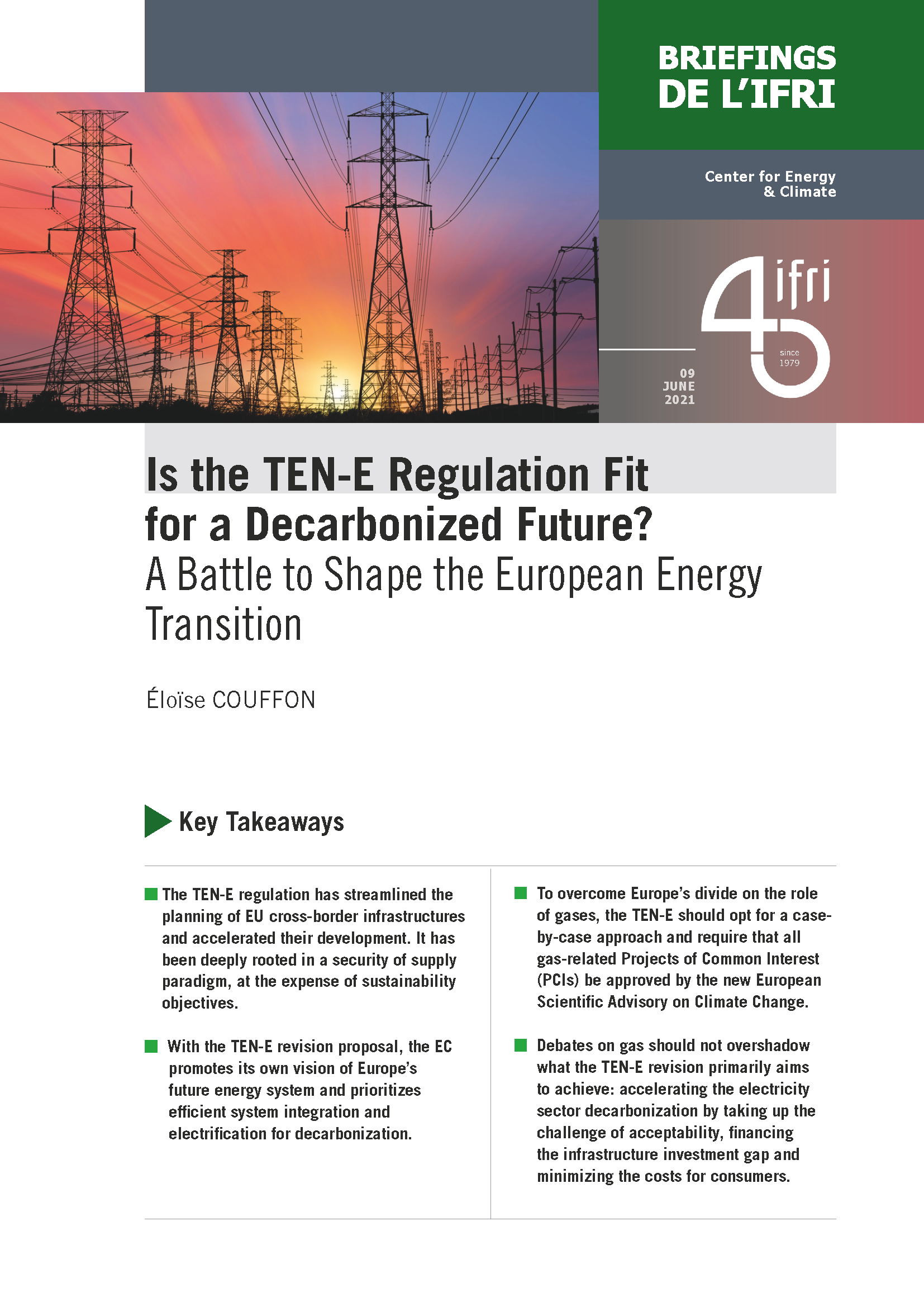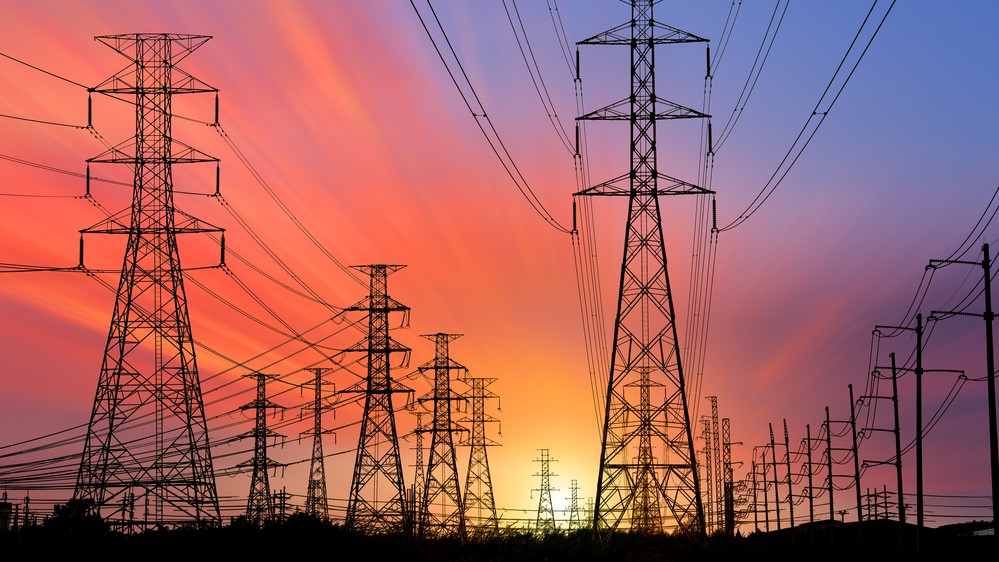Is the TEN-E Regulation Fit for a Decarbonized Future? A Battle to Shape the European Energy Transition

The European Union’s energy infrastructure policy has become obsolete with the adoption of both the Green Deal and the 2050 climate neutrality target. The ongoing review of the regulation on Trans-European Energy Networks (TEN-E) should lead to an-depth discussion on Europe’s energy transition strategy.

• The TEN-E regulation has streamlined the planning of European Union (EU) cross-border infrastructures and accelerated their development. It has been deeply rooted in a security of supply paradigm, at the expense of sustainability objectives.
• With the TEN-E revision proposal, the European Commission (EC) promotes its own vision of Europe’s future energy system and prioritizes efficient system integration and electrification for decarbonization.
• To overcome Europe’s divide on the role of gases, the TEN-E should opt for a case-by-case approach and require that all gas-related Projects of Common Interest (PCIs) be approved by the new European Scientific Advisory on Climate Change.
• Debates on gas should not overshadow what the TEN-E revision primarily aims to achieve: accelerating the electricity sector decarbonization by taking up the challenge of acceptability, financing the infrastructure investment gap and minimizing the costs for consumers.

Available in:
Regions and themes
ISBN / ISSN
Share
Download the full analysis
This page contains only a summary of our work. If you would like to have access to all the information from our research on the subject, you can download the full version in PDF format.
Is the TEN-E Regulation Fit for a Decarbonized Future? A Battle to Shape the European Energy Transition
Related centers and programs
Discover our other research centers and programsFind out more
Discover all our analysesPlacing the EU on a Warfare Footing: Energy and Raw Materials Priorities for 2026
The year 2025 has confirmed that one must prepare for much worse in the field of geopolitics and geoeconomics as the intensity and frequency of shocks increase and as the European Union (EU) has no more stable flanks now that crises with the United States (US) become so frequent and reveal a systemic rift. In the world, barriers to trade multiply and dependencies are weaponized.
Brazil One Year Away from the October 2026 General Elections
Brazil’s general elections will be held on October 4, 2026, to elect the president, vice-president, members of the National Congress, governors, deputy governors and state legislative assemblies. For the presidential and gubernatorial elections, a second round will be held on October 25 if no candidate obtains a majority of the votes in the first round.
COP30: An Inflection Point for Climate Action and Governance
The 30th Conference of the Parties (COP30), opening in Belém, Brazil, on November 10th 2025, convenes at a perilous moment.
The Strategic Dimension of Skills in the Clean Industrial Deal
In the competitiveness and energy transition battles, the European Union (EU) must master a determinant factor: skills.










